The secretly toxic bathroom storage items toxicologists urge you to replace now
Protect your health and your home with easy swaps
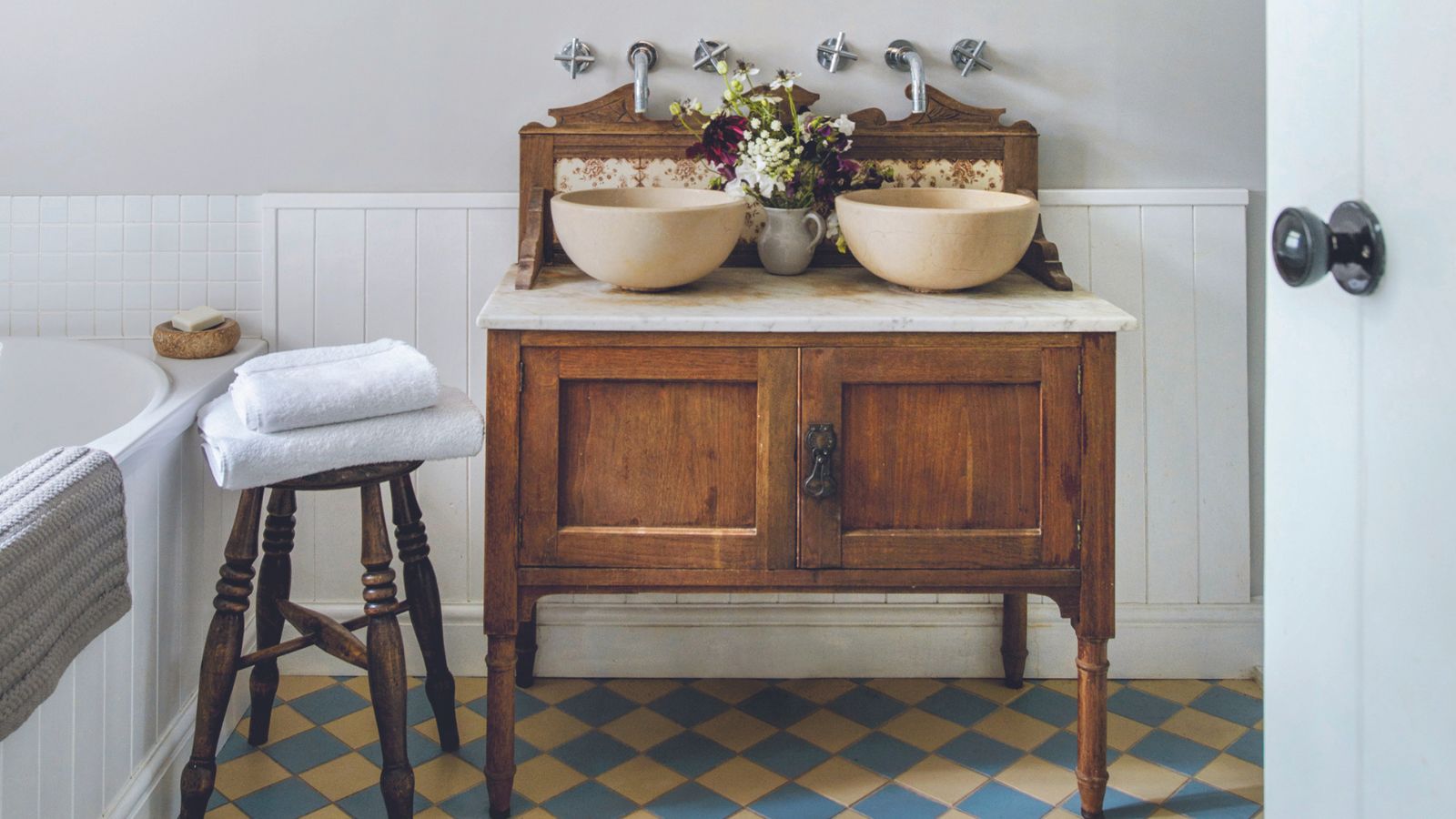

When we think of toxicity in our homes, our minds usually go to kitchens full of non-stick pans and black plastic utensils. However, bathrooms can be just as bad, if not worse, toxicologists warn.
In fact, some of the most-necessary storage items we use in our bathrooms could be posing a serious health hazard without us even realizing it.
Here, top toxicologists reveal which bathroom storage items need to go to make this space safer, and what you can replace them with for a healthier home.
The most toxic part of a bathroom
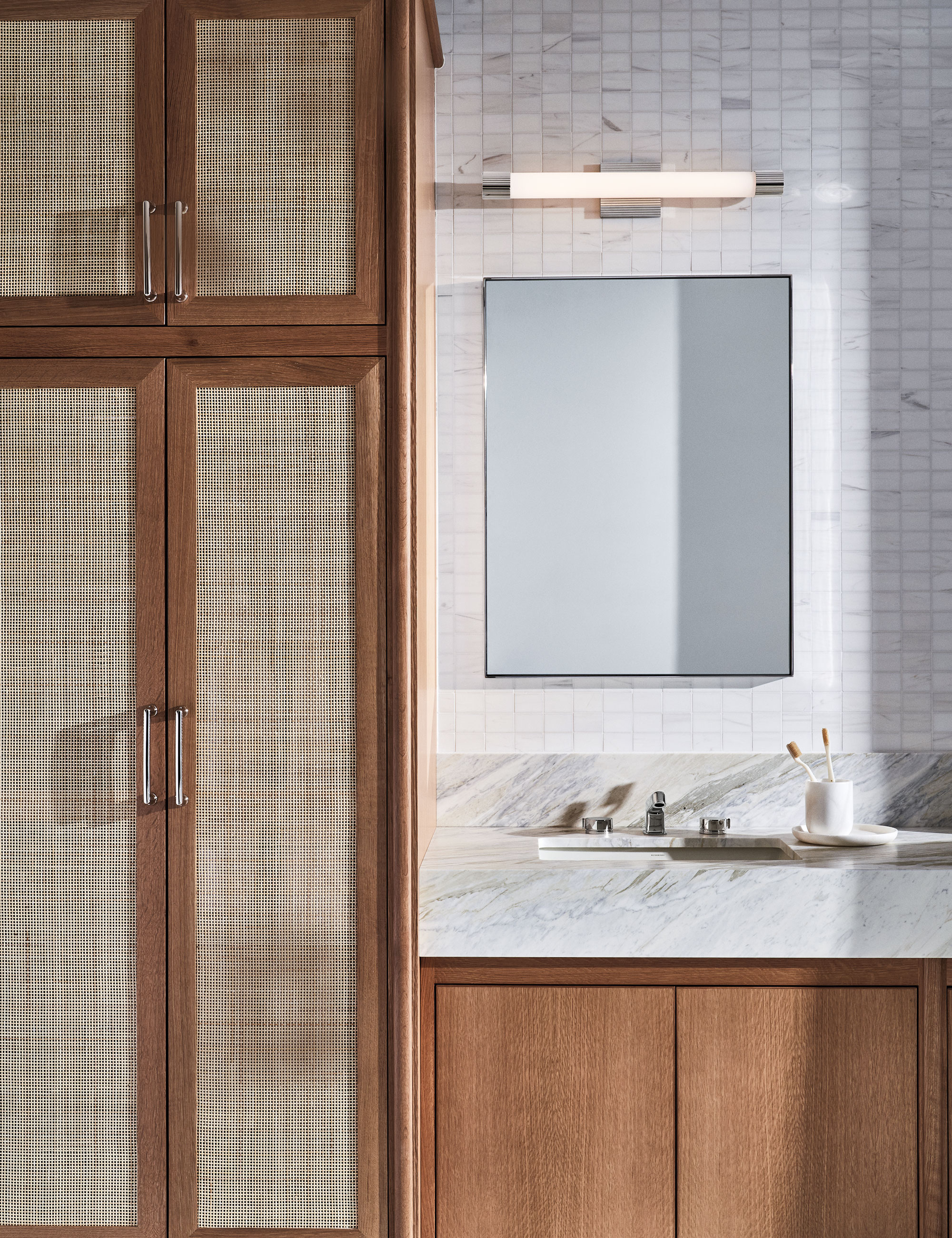
It might be surprising, but the worst toxicity offenders in your bathroom are usually storage items. While they might help keep things tidy, using ones made from toxic chemicals should be at the top of your bathroom decluttering checklists to make a home less toxic.
Bruce Jarnot, global materials compliance expert, toxicologist, and product compliance advisor at Assent says, ‘In the bathroom, personal care, storage, and cleaning products often contain PFAS. Even dental floss may contain PFAS.’
Studies have shown PFAS can have a dire impact on hormones, resulting in low mood and energy, disrupted cycles, and general health implications when used in or on your body in the long term. Cutting them out to the best of your ability is within your best interests.
Luckily, it is fairly easy to switch over to non-toxic home essentials to make your routine less damaging to your health, but don't forget about the toxic items in your bedroom and elsewhere, too.
Bruce Jarnot, toxicologist, adds, 'When shopping, look for items made from natural materials like cotton, bamboo, wool, or glass, and labels that state "PFAS-free" or "PFC-free”. If the ingredient list is long, look for chemicals that include “fluoro” as that signals the presence of PFAS.’
When organizing makeup and organizing skincare, store them in opaque storage off of the counters. This protects them from humidity and sunlight to prevent early deterioration, keeping them in top condition for longer.
Beyond storage, Amberly Johnson, certified toxicologist and director at Utah Poison Control Center at the University of Utah adds, ‘Our bathrooms are filled with products that can cause toxicity, including medications, personal care items, and cleaning supplies. Medications can be dangerous if not taken as directed or if ingested accidentally by children exploring their surroundings. Young children might mistake personal care products or cleaners for something edible. Additionally, getting cleaning products on the skin or in the eyes or inhaling their fumes can also pose serious risks.’
What to do about toxic bathroom storage
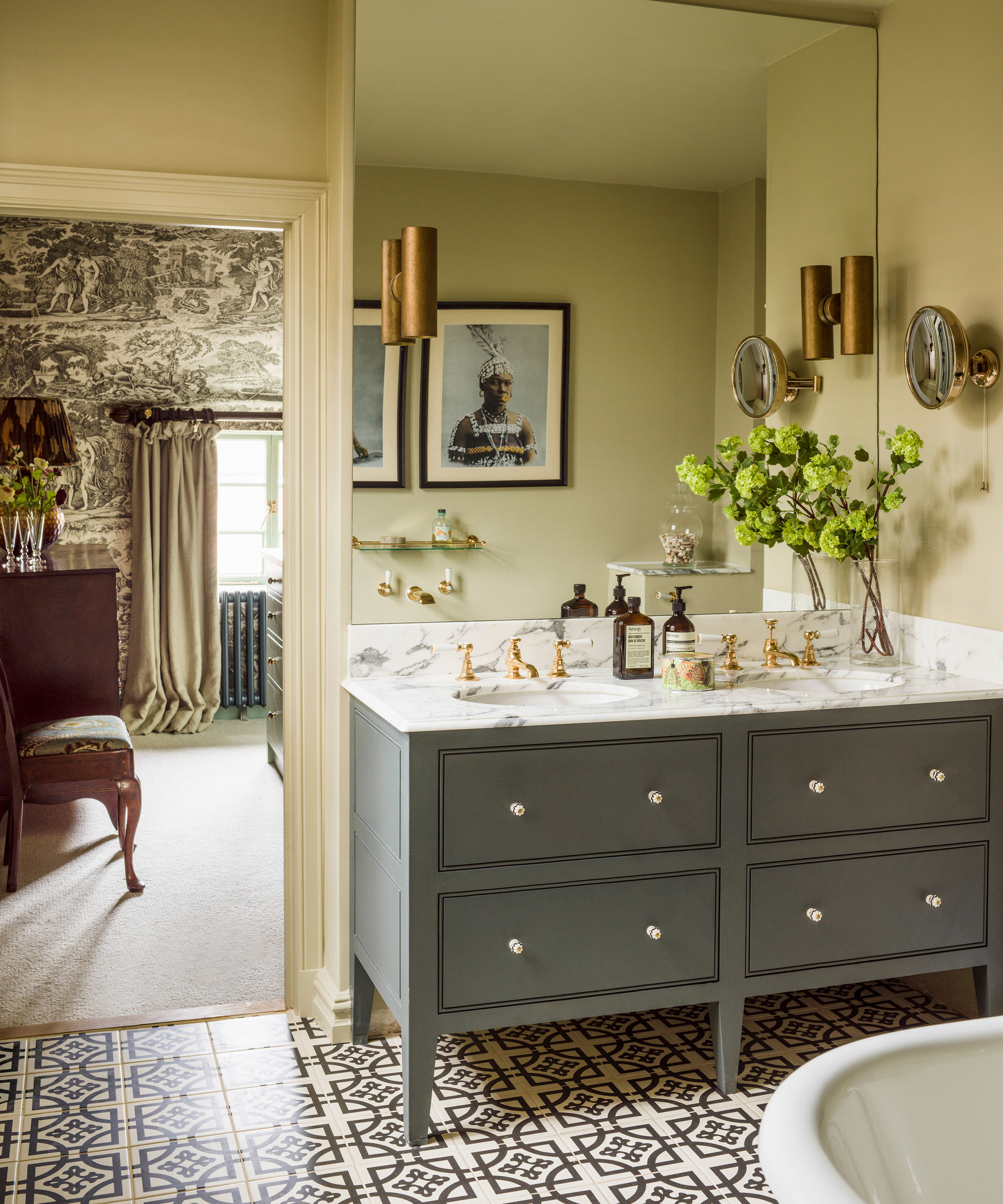
Luckily, it is fairly easy to switch over to non-toxic home essentials to make your bathroom storage less damaging to your health. Additionally, when organizing makeup and organizing skincare, keep them off your countertops to protects them from humidity and sunlight. This will to prevent early deterioration.
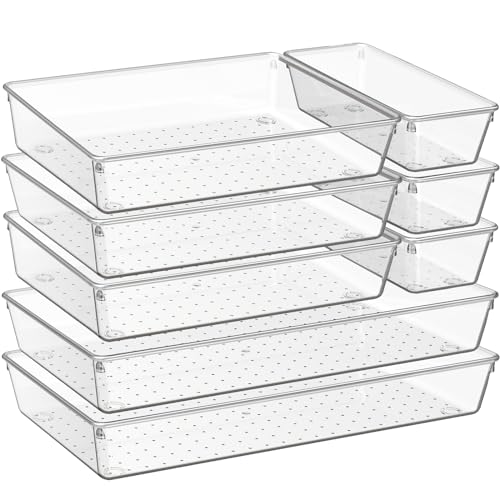
Go BPA free when picking plastic or acrylic storage items, as pictured here. These are free from the toxins that can leach into your products or items you use on your skin.
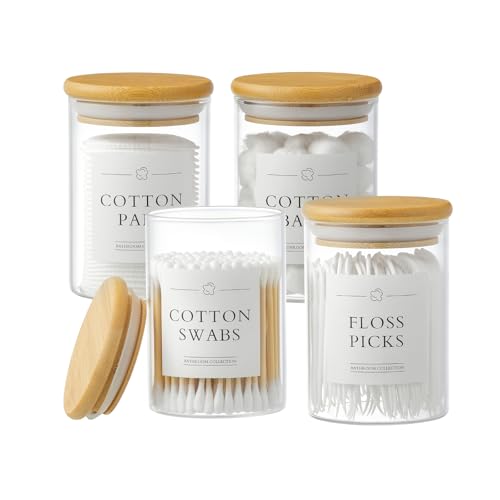
Glass is typically PFA free and these airtight jars are perfect for holding personal care items you use daily without leaching chemicals into them, or letting your bathroom's humidity get to them.
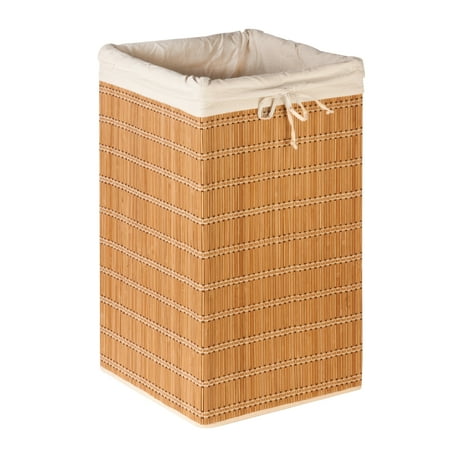
Replace your plastic hamper with a natural bamboo one to reduce toxicity in your bathroom laundry organizer. This one has a removable and machine washable liner for easy cleaning.
Amberly Johnson adds that organizing medicine cabinets correctly can help to keep your medications safe and in good condition, preventing early deterioration. They suggest, ‘Prevention is key to avoiding poison exposure in our homes. Store medicines out of reach or in places where they are not visible, such as behind closed cabinet doors or inside a locked box [available at Walmart]. Always keep medicines in their original, child-resistant packaging to make them harder to access and easy to identify.
‘Don’t forget to organize cleaning supplies the same way,’ she adds. ‘Place cleaners, including dishwasher detergent, in high cabinets that children cannot reach, and store them away from food to prevent cross-contamination. Remember, your local poison control center is available to help 24/7 at 1-800-222-1222 in case of a poisoning incident or if you have any questions.’
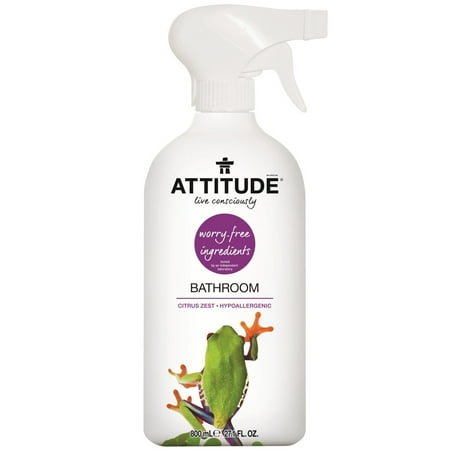
Keep your bathroom sanitized without harsh bleach by swapping to Attitude's EWG-approved bathroom spray. This means it is certified free from dangerous chemicals and toxins that could make you sick.
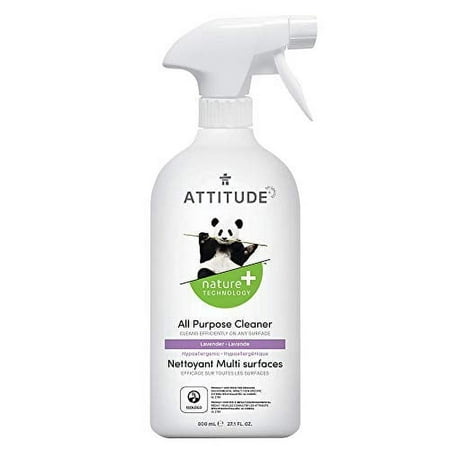
EWG and Ecologo approved, this all-purpose cleaner is formulated without dangerous ingredients for a healthier home and cleaning routine.
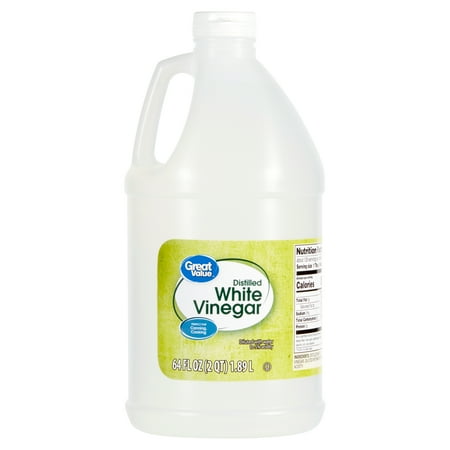
Vinegar is a go-to 'safe' cleaner, helping to kill bacteria and remove odors without the need for harsh chemicals. A 2020 medical study demonstrated that white vinegar) has a disinfecting effect against a variety of microorganisms, including dangerous pathogens such as E. coli.
FAQs
Are shower curtains toxic?
Shower curtains are relatively unassuming bathroom items, but they are one of the most toxic.
Dr. Paul Savage, toxin expert and chief medical officer at MDLifespan explains, ‘Most of the ones on the market are made from PVC, which can release volatile organic compounds (or VOCs) into the air. These VOCs aren’t great, and they’ve been linked to respiratory issues and other health concerns. Swapping to a fabric or PEVA shower curtain is a simple change that can make a big difference.’
How you clean a bathroom can also make a big difference to its toxicity. When choosing cleaning products, opt for less astringent cleaners such as cleaning with vinegar or pick up plant-based cleaning products to make your bathroom healthier, creating a relaxing wellness space that actually does you some good, not harm.
Sign up to the Homes & Gardens newsletter
Design expertise in your inbox – from inspiring decorating ideas and beautiful celebrity homes to practical gardening advice and shopping round-ups.

Chiana has been at Homes & Gardens for two years and is our resident 'queen' of non-toxic living. She spends most of her time producing content for the Solved section of the website, helping readers get the most out of their homes through clever decluttering, cleaning, and tidying tips. She was named one of Fixr's top home improvement journalists in 2024.
-
 Pamela Anderson's kitchen seating arrangement is one of the most intelligent I've seen – it turns an awkward corner into a chic social space
Pamela Anderson's kitchen seating arrangement is one of the most intelligent I've seen – it turns an awkward corner into a chic social spaceThe model's banquette seating perfects a smart seating trend that's shaping how we dine and socialize in 2025 – and it will fit in the smallest of kitchens
-
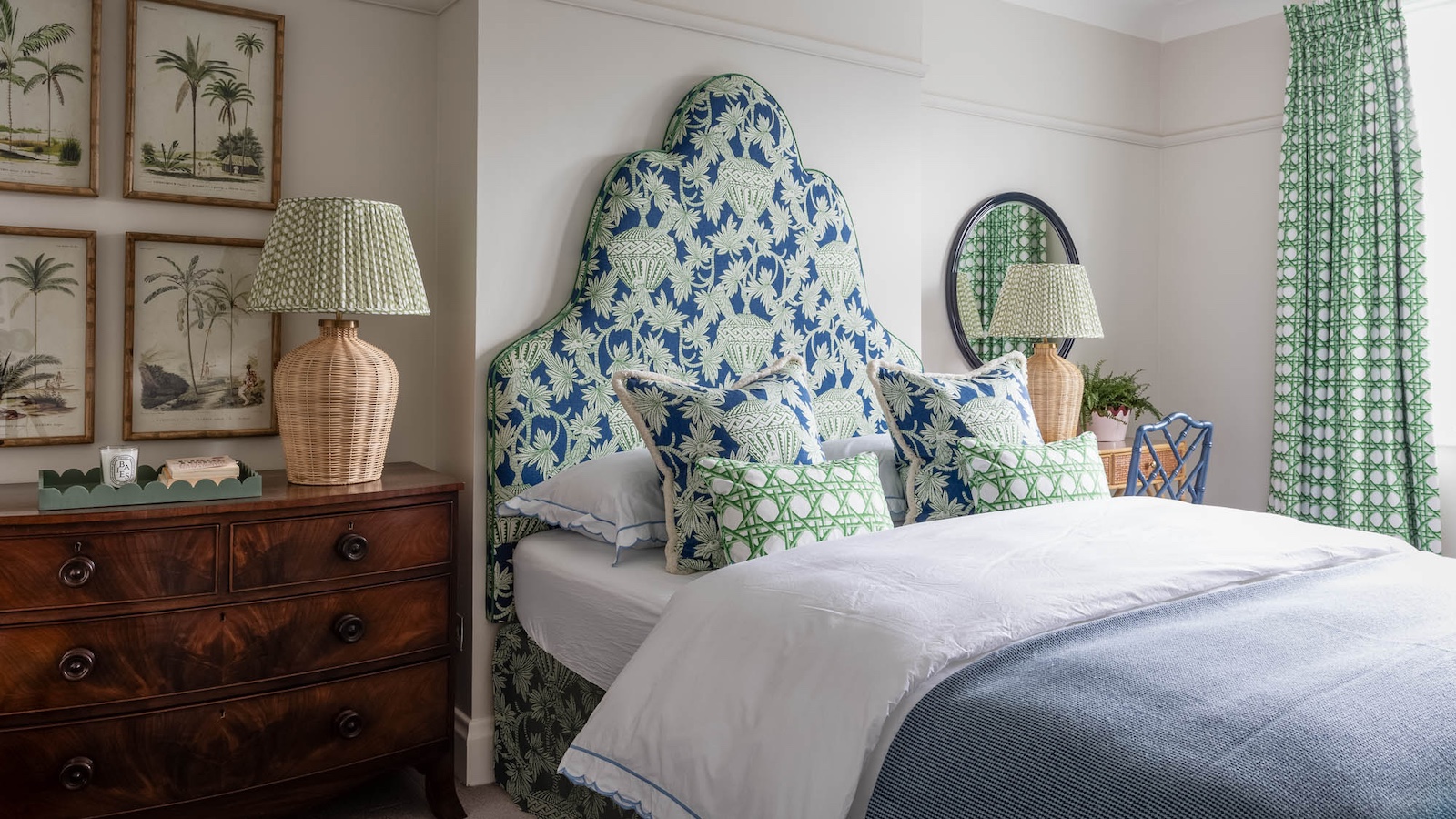 8 of the biggest small bedroom layout mistakes designers see time and time again
8 of the biggest small bedroom layout mistakes designers see time and time againThese small bedroom layout mistakes are so easy to make, but so easy to avoid too
-
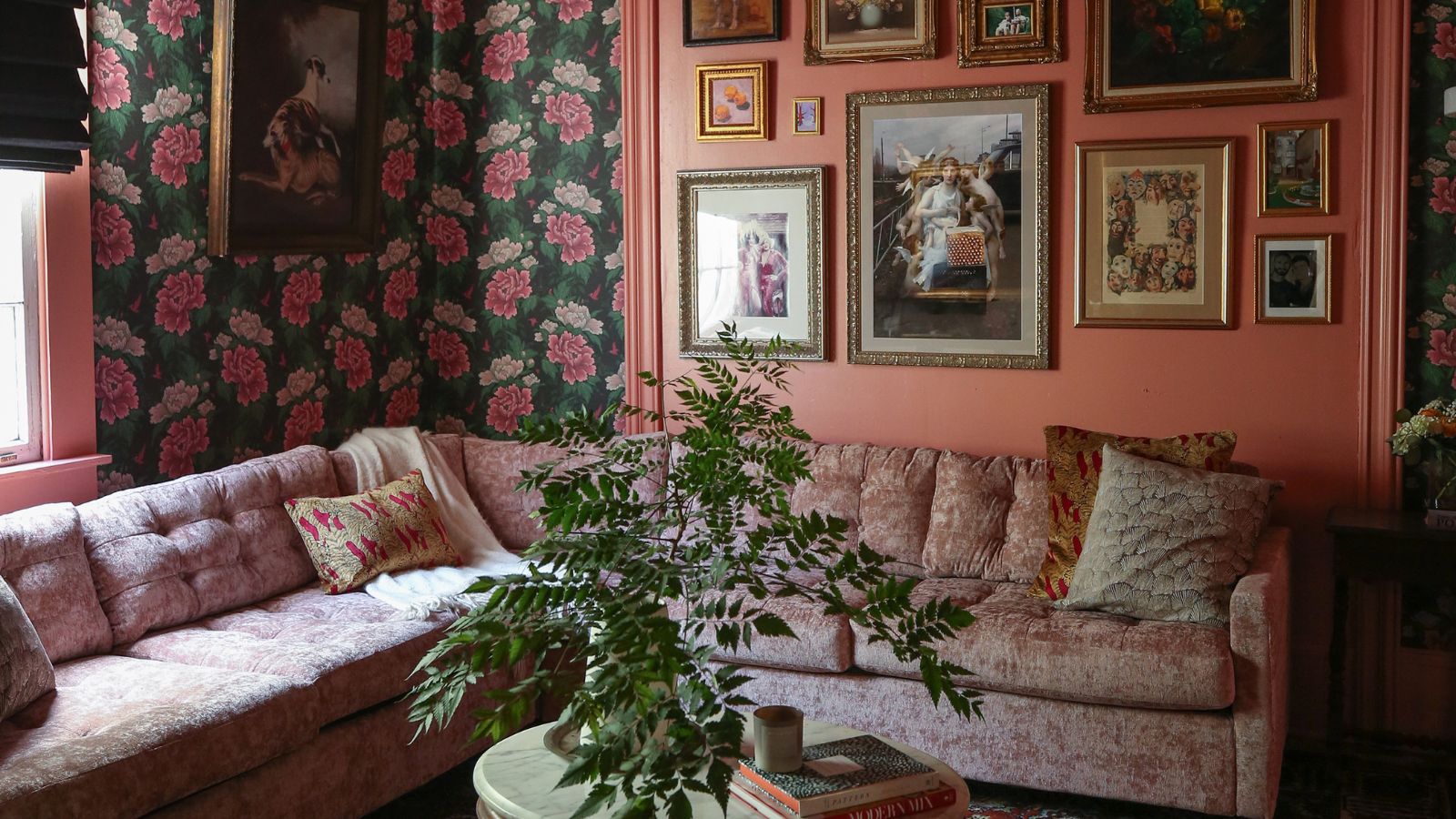 Too busy to declutter? The Incremental Improvement System creates lasting change with small daily actions, say pros
Too busy to declutter? The Incremental Improvement System creates lasting change with small daily actions, say prosIt's also perfect for those who get easily overwhelmed
-
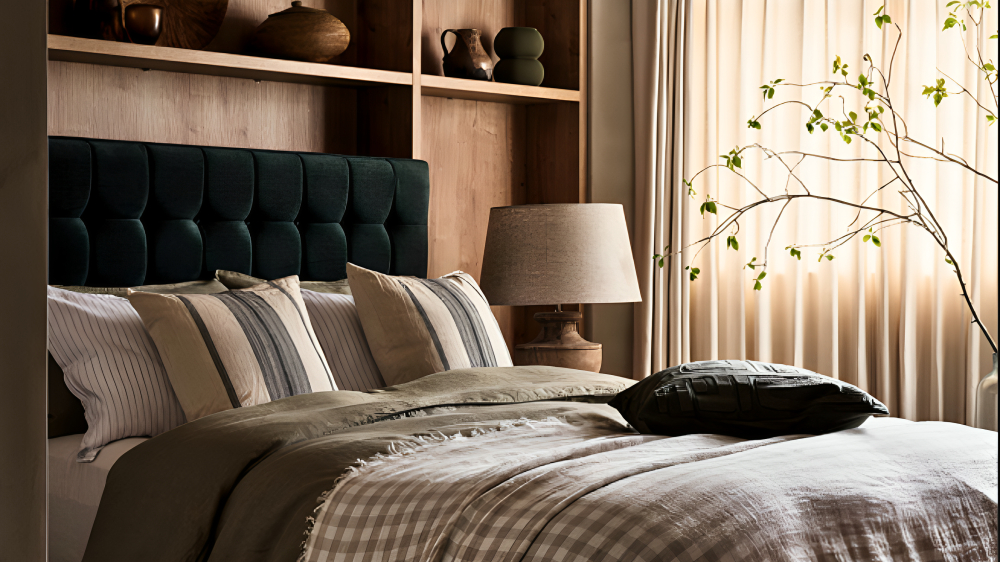 The Expiry Decluttering Method cleared things I was holding onto 'just in case' – and my closet is finally free of guilt-inducing 'anchor pieces'
The Expiry Decluttering Method cleared things I was holding onto 'just in case' – and my closet is finally free of guilt-inducing 'anchor pieces'Treating clutter like food quickly cleared problem piles
-
 The 'discharge decluttering method' helped me gently let go of sentimental belongings without triggering feelings of sadness
The 'discharge decluttering method' helped me gently let go of sentimental belongings without triggering feelings of sadnessThis slower-paced decluttering method has a long-lasting impact
-
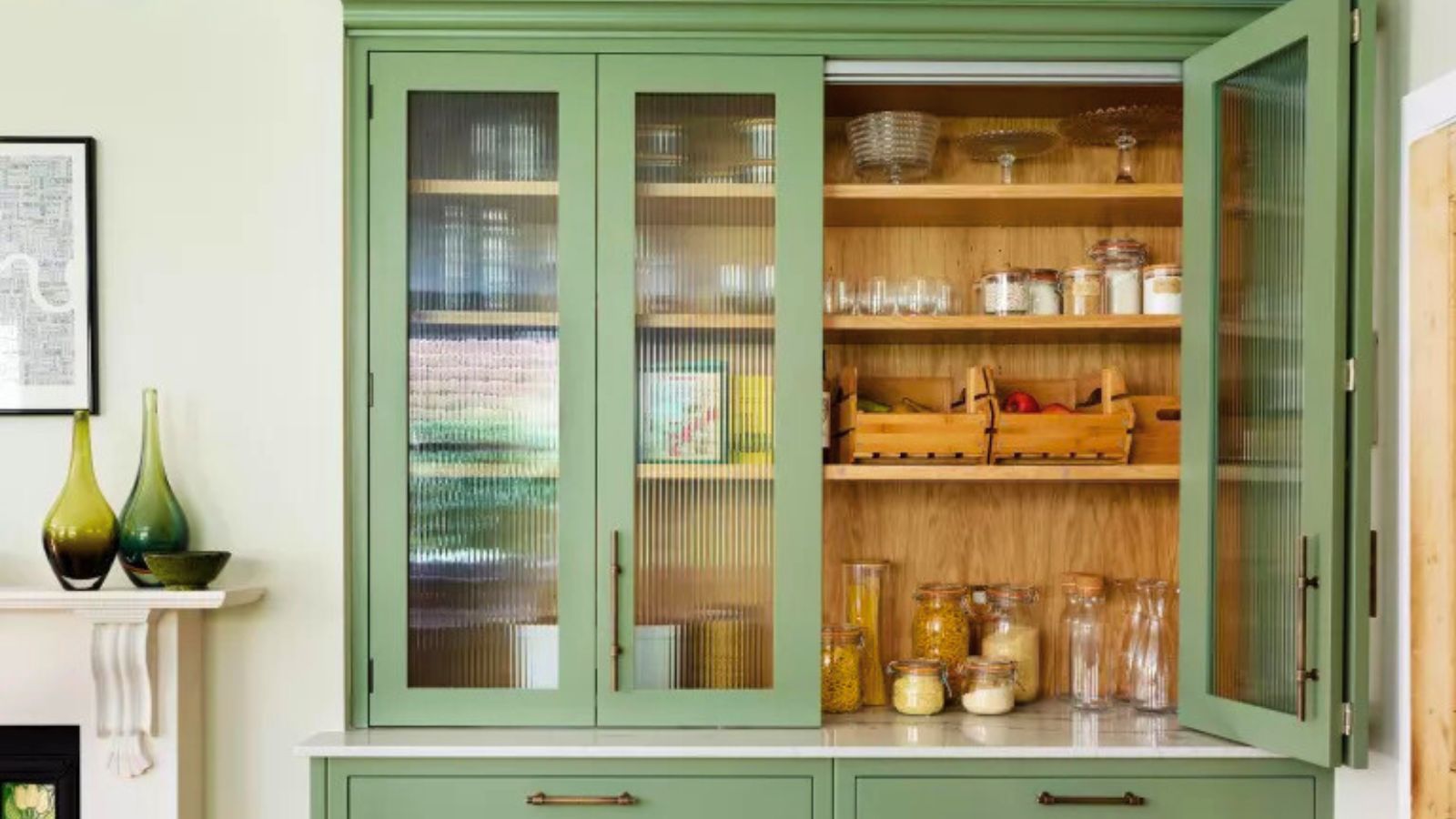 5 signs your home is already organized enough and what to focus on next
5 signs your home is already organized enough and what to focus on nextSupplement your already-organized home with these expert-approved ideas
-
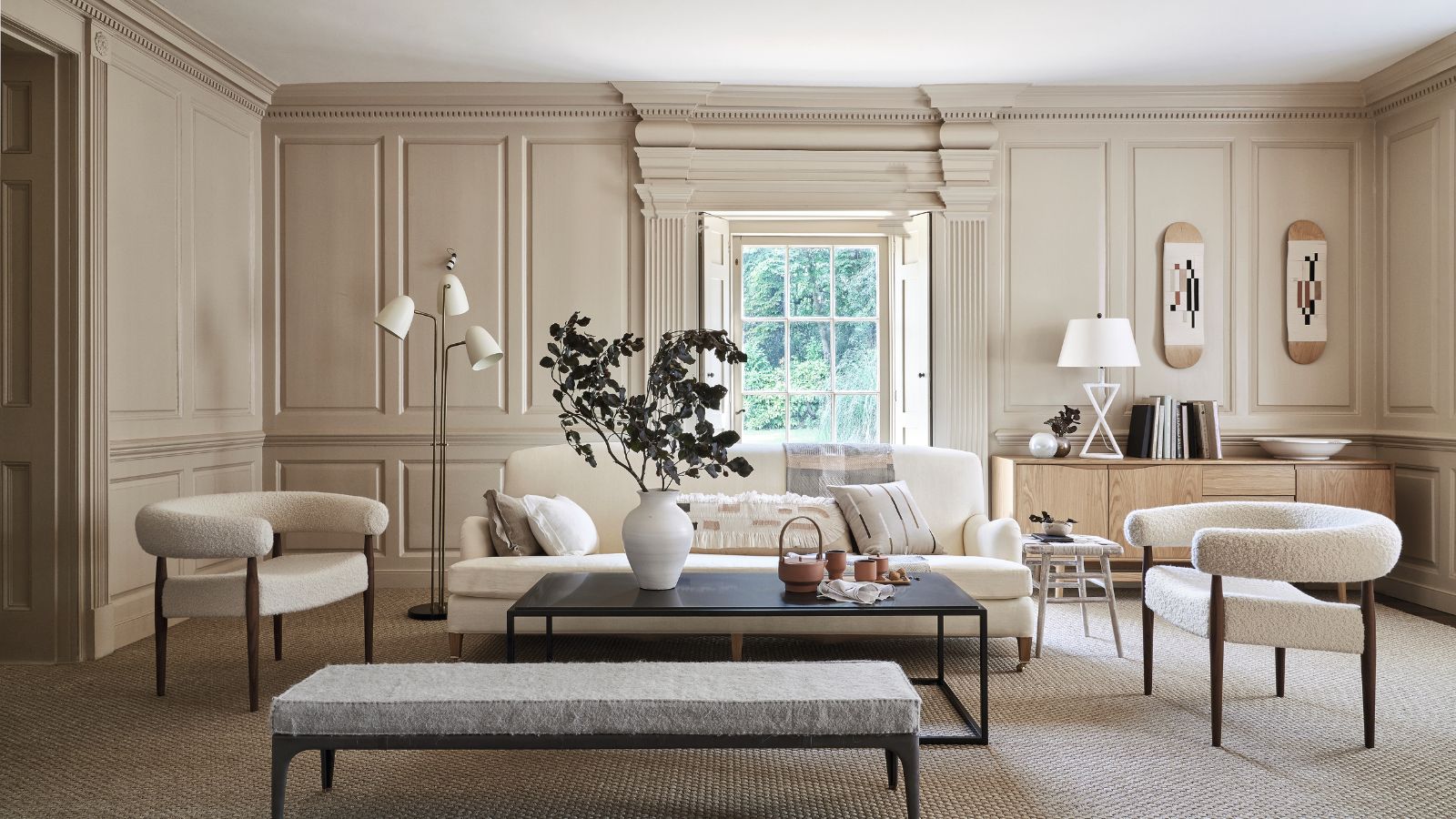 'An exit strategy for clutter' – 7 easy ways to embrace minimalism in a busy household
'An exit strategy for clutter' – 7 easy ways to embrace minimalism in a busy householdDon't let a bustling home stand in the way of a streamlined space
-
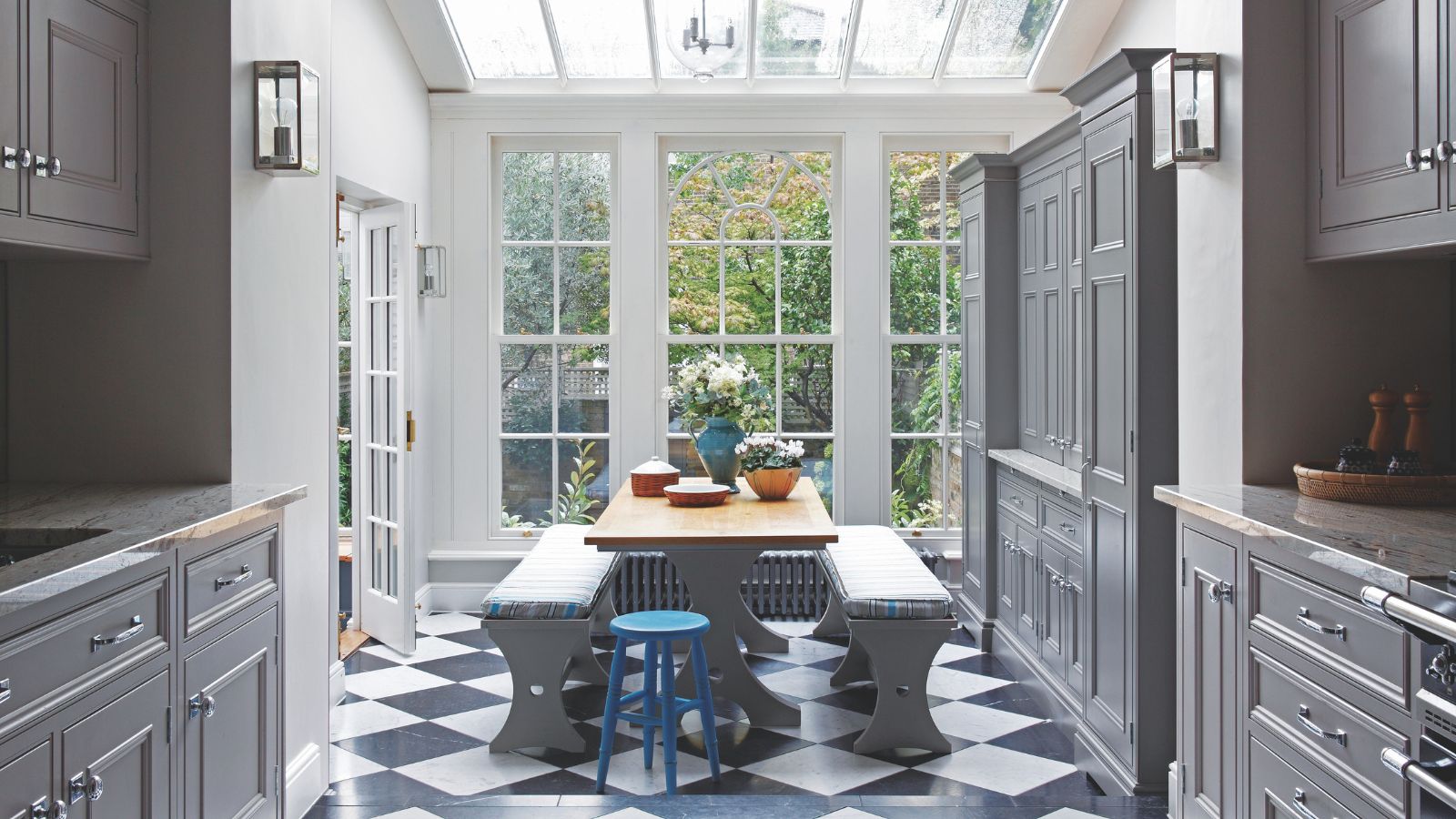 5 overlooked spots you're forgetting to declutter – prioritize these now or face difficulties later, experts warn
5 overlooked spots you're forgetting to declutter – prioritize these now or face difficulties later, experts warnDon't neglect decluttering these areas, professional organizers urge
-
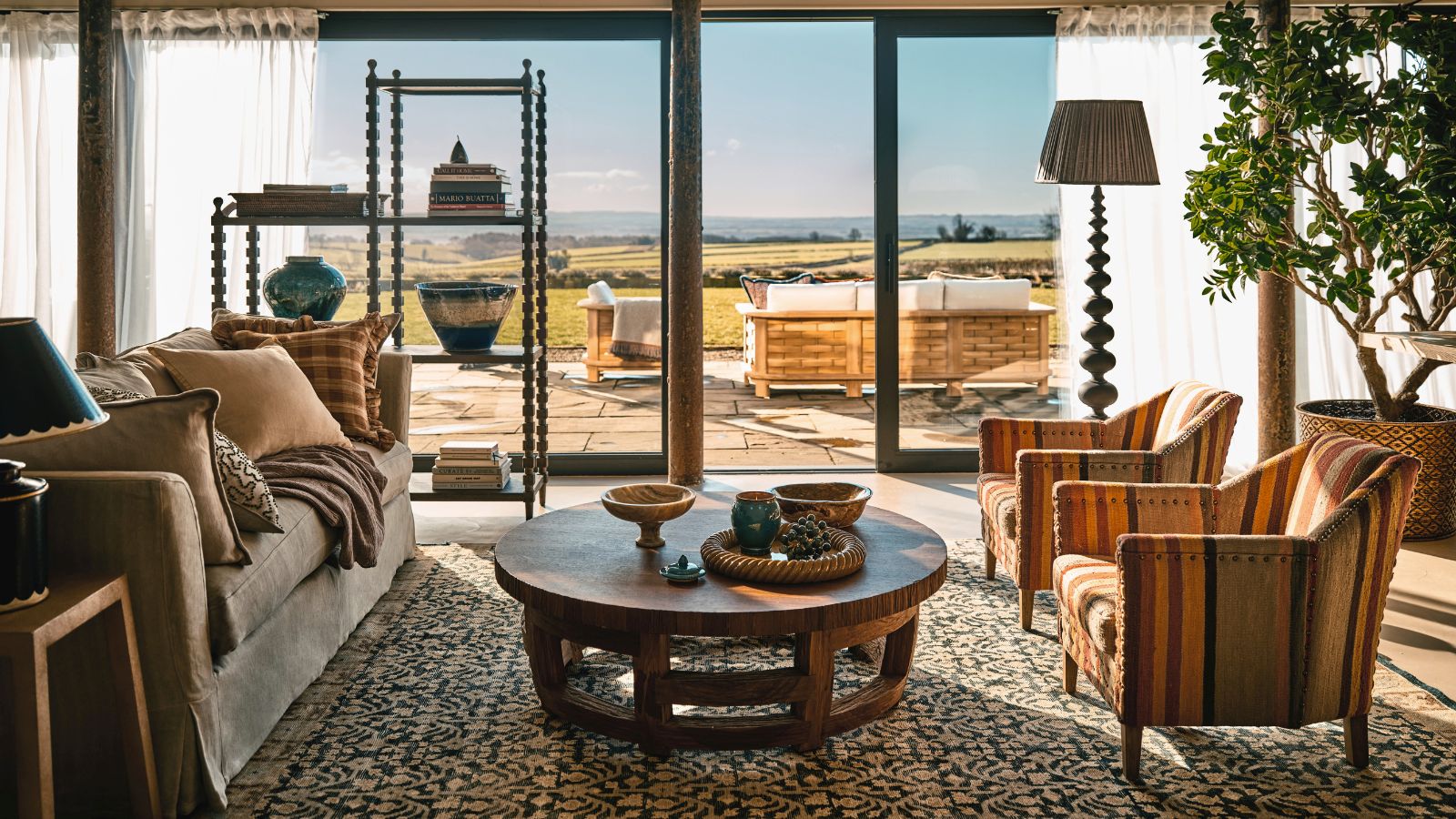 I let ChatGPT determine my decluttering to-do list – and it completely changed how I structure my day
I let ChatGPT determine my decluttering to-do list – and it completely changed how I structure my dayI’d recommend it to anyone feeling overwhelmed
-
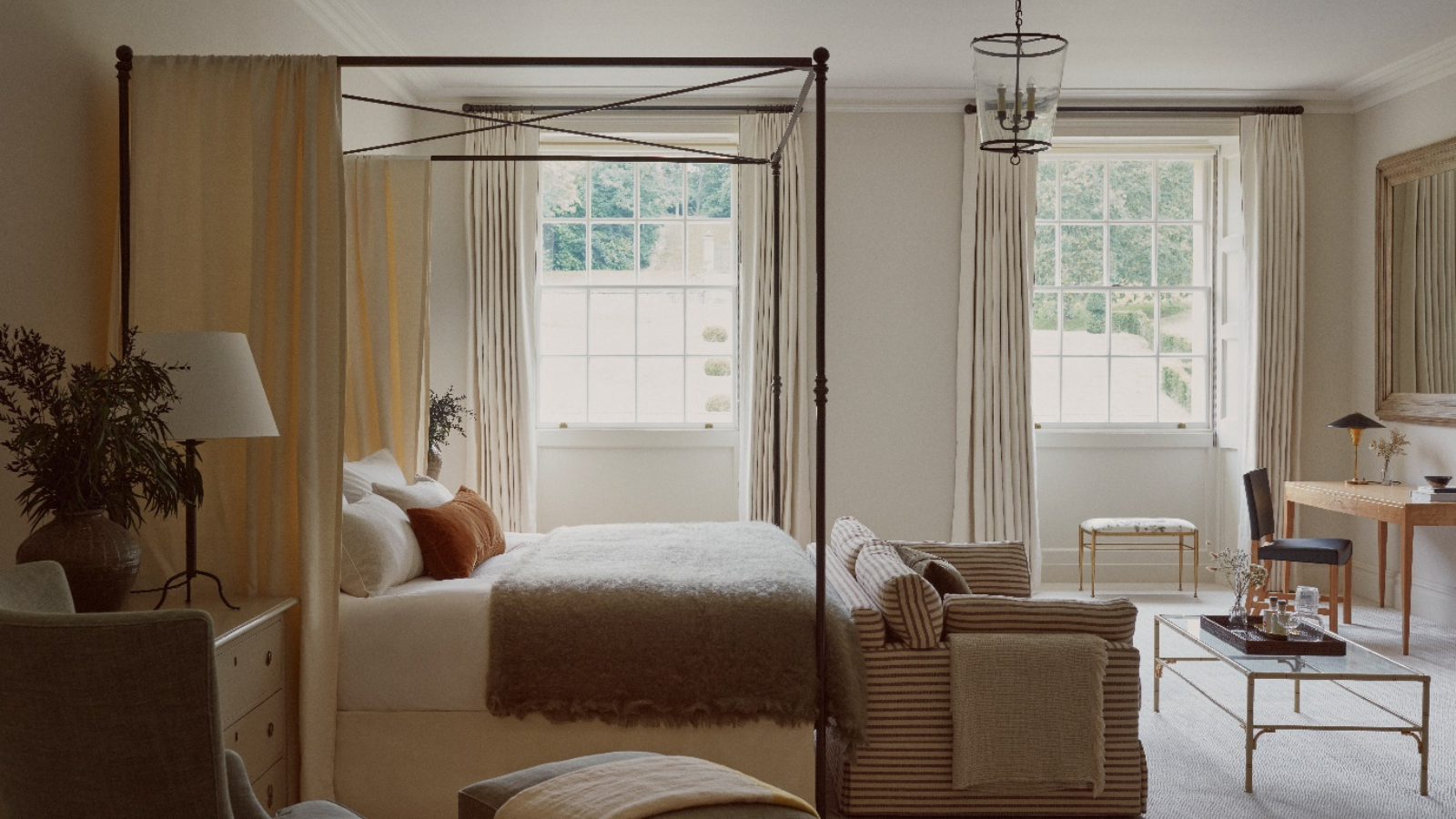 7 minimalist decluttering mistakes that make the job harder, and keep streamlined simplicity out of reach
7 minimalist decluttering mistakes that make the job harder, and keep streamlined simplicity out of reachThese errors often get in the way of a clutter-free home